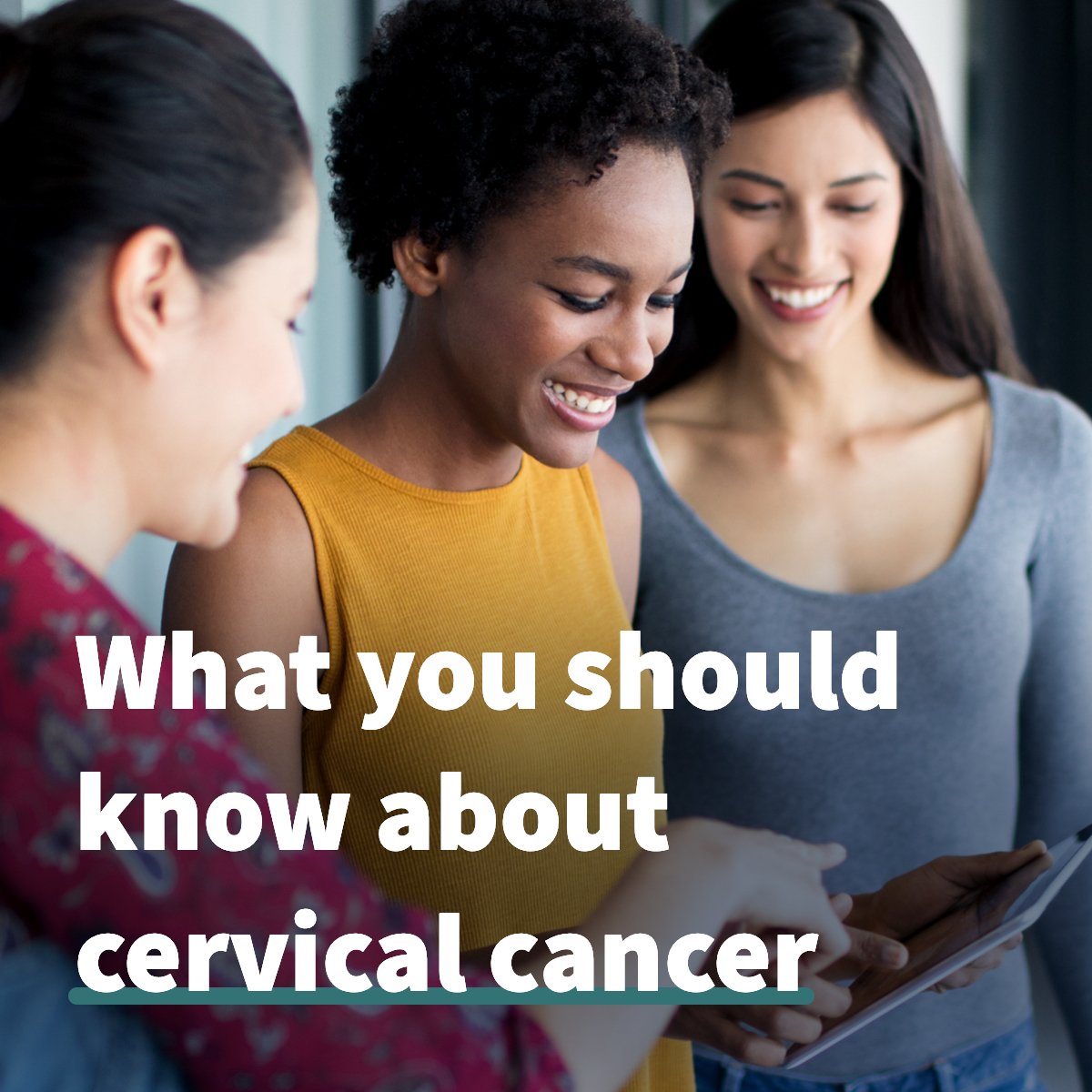January: Cervical Cancer Awareness

January is dedicated as Cervical Cancer Awareness Month– a time to raise money, awareness, and support for those suffering with cervical cancer. Cervical cancer is a tumor that originates on the lower part of the uterus. As estimated for 2022, roughly 14,100 new cases of invasive cervical cancer will be diagnosed and 4,280 women will die from it.
How can we screen for it?
There are two main ways to screen for cervical cancer- a yearly pap test and HPV vaccination. A yearly pap test (also known as a pap smear) is a screening procedure that can detect changes in the cervix before cancer develops and can also detect cancer early when it is easier to cure.
The HPV (human papillomavirus) test is a test that looks for the infection that causes almost all cervical cancers. This test can be done alone or in conjunction with the pap test.
Since cervical cancer is the most frequent cancer diagnosed for women between 35 and 44, we need to encourage moms, sisters, aunts, grandmas, neighbors, and any individual with a cervix in our life to continue to get their yearly cancer screenings. Talk with your health care provider if you have any questions regarding pap tests or if you feel you may need one.
How can you reduce your chances of getting cervical cancer?
Do not smoke – smoking is linked to higher rates of HPV leading to cervical cancer
Get an HPV vaccine – the HPV vaccine protects children and adults from HPV infections that are most commonly linked with cervical cancer
It is recommended that children 9-12 get vaccinated. Unvaccinated 13-26 year old’s should still get vaccinated, but those who are unvaccinated and older than 26: please talk to your health care provider
Practice safe sex such, as using condoms, which limit exposure skin to skin contact and reduces the likelihood of someone with HPV spreading it to another person
While not reducing your likelihood of getting cervical cancer, regular cancer screenings every 5 years after the age of 25 until the age of 65 will reduce the likelihood of the cervical cancer leading to death
For more information about reducing the causes of cervical cancer, go to Can Cervical Cancer Be Prevented? on cancer.org.
How can you get involved?
National HPV Roundtable- Through coordinated actions and planning, the goal of this coalition is to reduce the spread and morality from HPV. To learn more go to the HPV Round Table
Participate in the American Cancer Society Cancer Action Network initiative by emailing local legislatures in the hope of campaigning for increased accessibility to cervical cancer screenings. To learn more go to ACS CAN’s webpage on Breast & Cervical Cancer.






